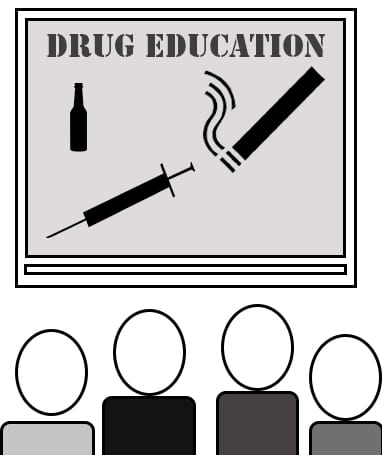
In late September, a Change.org petition began to circulate on Oles’ Facebook walls. Between “ALS Ice Bucket Challenge” posts and cat videos was a letter pleading on behalf of a Carleton student faced with expulsion.
The petition outlines a series of events that took place on Sept. 15: a group of Carleton students took LSD in the Arboretum, one of them began seizing, then two others panicked upon witnessing the seizure. A sophomore in the group whose threat of expulsion prompted the campaign called for help, and the subsequent police investigation uncovered MDMA laced with meth in her dorm room.
The letter’s central claim is that if Carleton were to follow through with the expulsion, then it would set a precedent that discourages calling for help. Indeed, the petition title frames the issue as a simple action-reaction scenario: “Ask Carleton not to expel a student who called for help.” Action: student calls for help in medical emergency. Reaction: expulsion.
A key detail omitted from the petition is that the student caught with the drugs was already on probation for a drug-related offense, according to a story in The Carletonian. This is crucial for contextualizing the severity of Carleton’s disciplinary action. Another piece of glossed-over information involves the disconnect between the circumstances that triggered the seizure and the circumstances of the room search. The seizing student was tripping on LSD; the student who called for help was found to have MDMA laced with meth in her room. The possession offense that ultimately put expulsion on the table was unrelated to the events that endangered her friend.
Absolutely none of this is to say that medical amnesty is not important. It can, and does, save lives. But in this particular incident, a complicated case was manipulated to appear straightforward. If the student who called for help hadn’t been in possession of other drugs along with a history of substance violations, Carleton’s response would likely have been more forgiving. The students’ argument about setting a “disturbing precedent” is a stretch, at best. The letter reads like it invoked principle largely because it was the most convenient defense.
The petition did, in fact, garner more than the requested 1,500 signatures. It closed after receiving 1,957. Whether or not it had any bearing on the Sept. 26 decision to give the student a reprieve, we can’t be sure. In any case, the student is now facing a yearlong suspension rather than total banishment.
What we can take from this is that both drug policy and drug education need work, and not just at Carleton. Since drug experimentation is a reality for some college students, policy needs to be as unambiguous as possible, and always with the end goal of keeping students safe. Drug education also needs to expand in scope, because if the intellectual minds of a school like Carleton aren’t prepared for the consequences of use, then who is?
It’s unfortunate that it took a painful, terrifying night in order for these conversations to take place. Still, it has given us a valuable opportunity to take a critical look at the culture of substance use and discipline.
Abby Grosse ’15 grosse@stolaf.edu is from Shoreview, Minn. She majors in English with a concentration in women’s and gender studies.
Graphic Credit: ETHAN BOOTE/MANITOU MESSENGER

